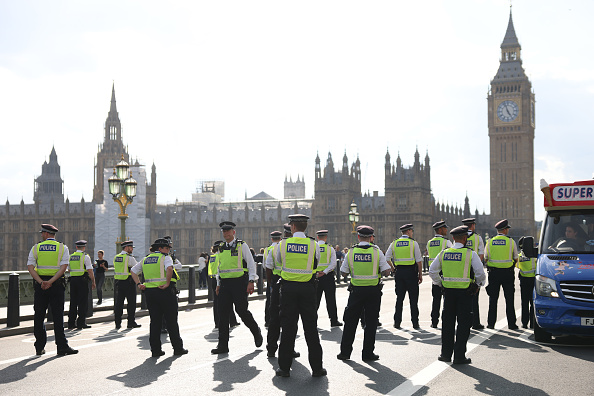Explainer: The Met Police is at risk of being broken up

The Met Police have faced scandal after scandal in the last few years. The past couple of years cast light on serious failings to get rid of violent, misogynistic and racist officials. After the murder of Sarah Everard by serving officer Wayne Couzens, many women don’t trust the police anymore – only 4 per cent of women under 35 said they “strongly trust” the Met according to a survey by JL Partners for LBC.
And now if it doesn’t proactively prove it is doing better, the institution risks being broken up.
There has been an ongoing conversation about the structure of the Met. Like with any other big institution, asking whether it would be better off if it was smaller is a legitimate question. But the debate is getting renewed urgency as an independent report by crossbench peer Louise Casey gets published tomorrow.
The report will recommend the Met should lose areas of national responsibility – including counter-terrorism – if it doesn’t undergo radical and urgent reform.
The current Met commissioner, Sir Mark Rowley, is well aware of the scope of his mission. The police operate on trust, and trust in the Met is lacking these days. He has been actively seeking to change things and be honest about the current problems in the force he’s at the helm of.
One of these is a biased legal framework that protects officers from being sacked even when they have clearly been in breach of conduct. More than 1,500 officers or members of staff in England and Wales faced complaints of violence against women or girls between October 2021 and March 20222. Ninety-one per cent of the complaints resulted in no further action being taken. Only 13 officers were dismissed.
Rowley has openly criticised this system, and home secretary Suella Braverman is said to be in favour of making it easier to sack officers who are corrupt, or found to make misogynistic or racist comments.
Following the recommendations of the report could be the only lifeline for the Met before the government is obliged to take action and break it up. After all, even the “chief of chiefs” Martin Hewitt – the chair of the National Police Chiefs’ Council – has admitted the Met has no “God-given right” to survive in its current form and size without the trust of the public.
Rowley might be trying to lead a force that operates transparently, but young recruits still complain of a strong difference in workplace culture between the training they’re getting and senior officers who are not likely to take a speed course on diversity and inclusion very seriously. Until this gap is breached, problems will keep arising. And the Met can’t afford it.